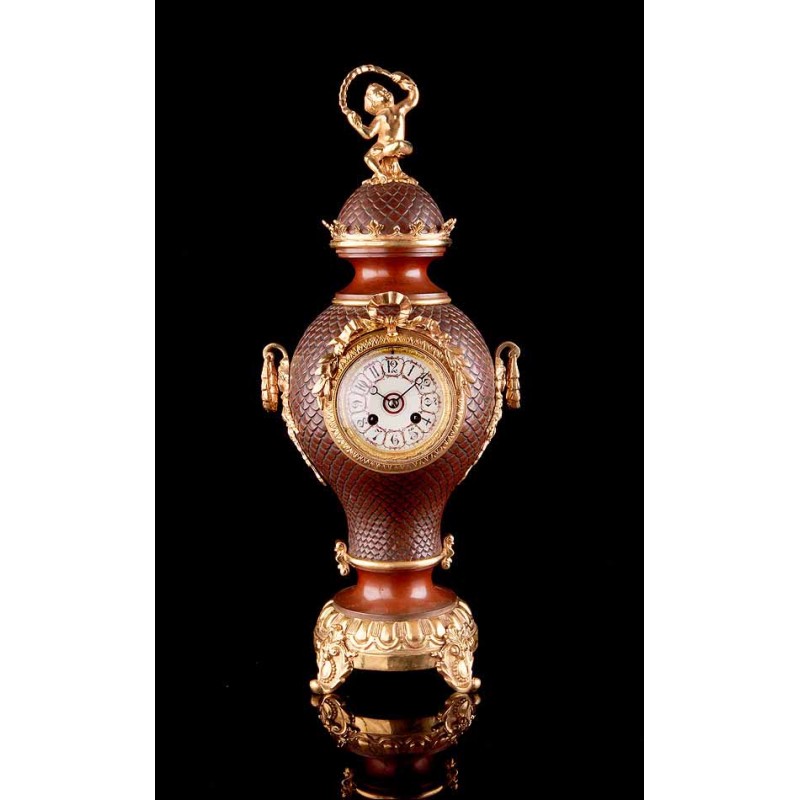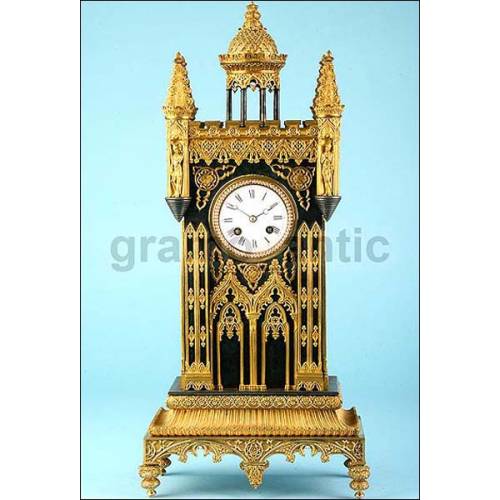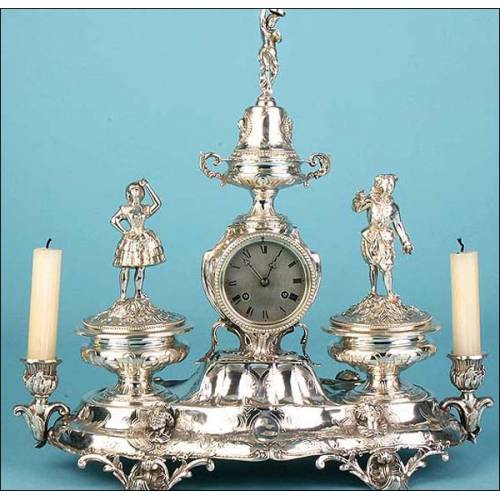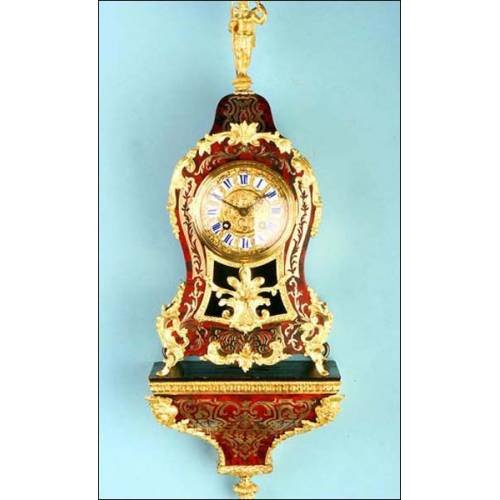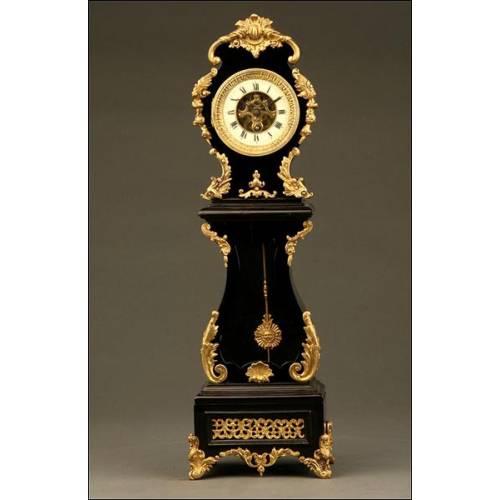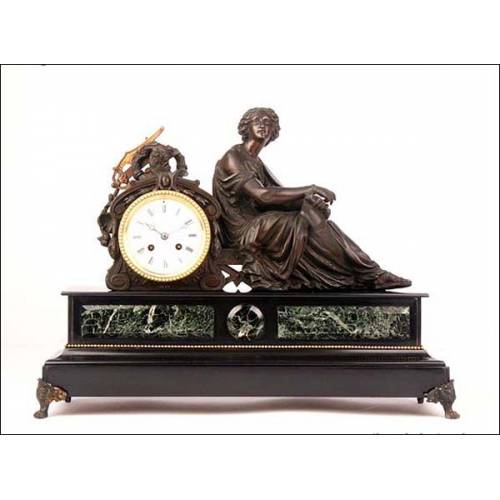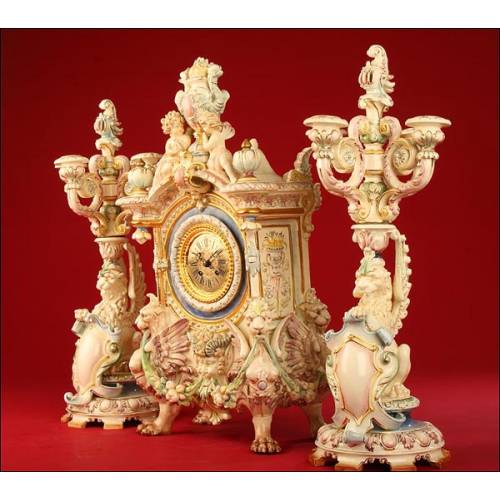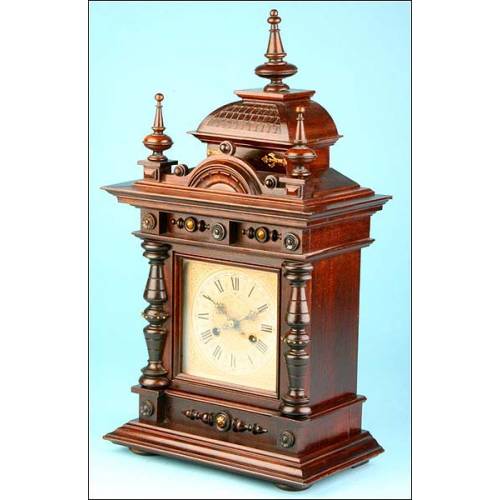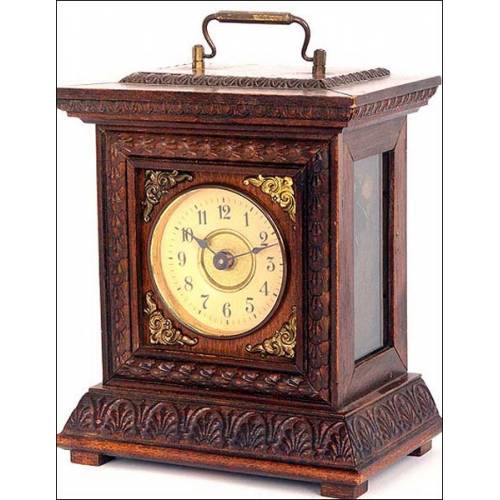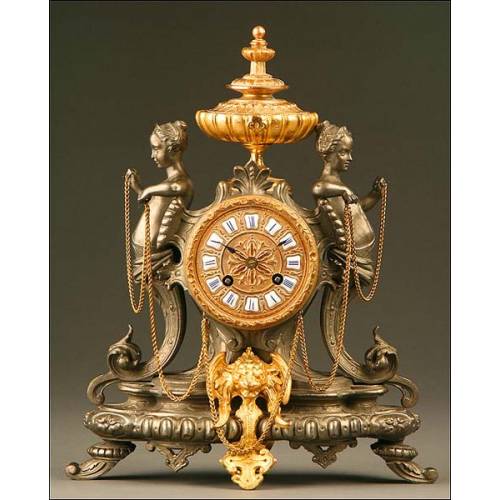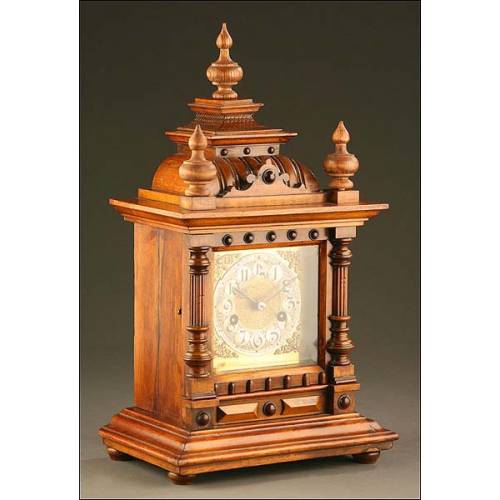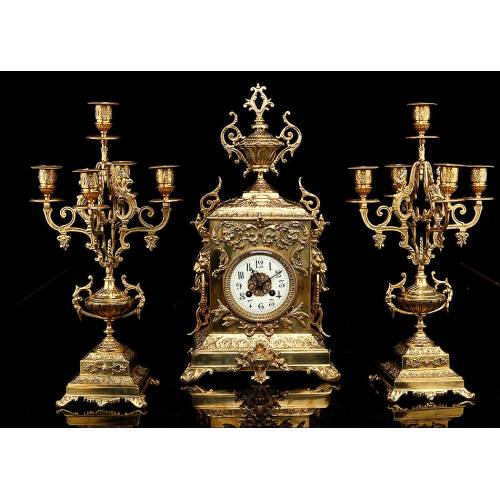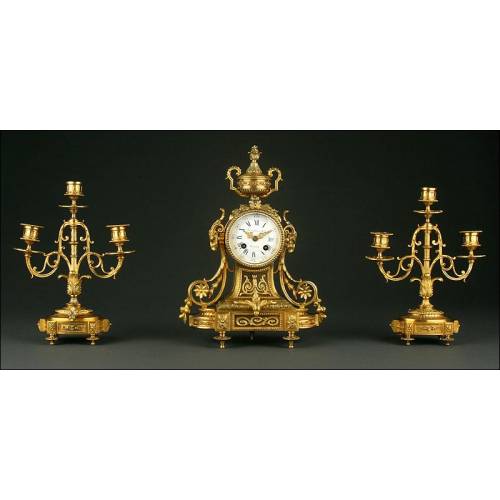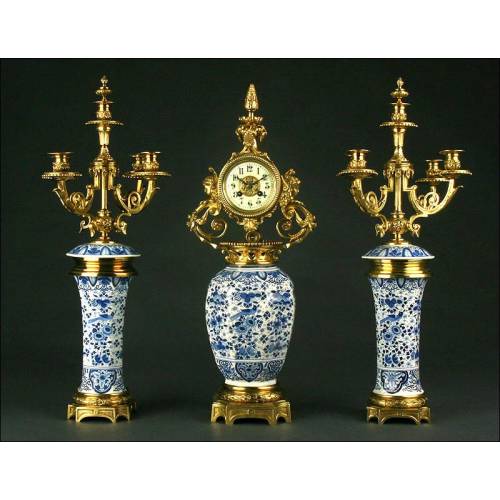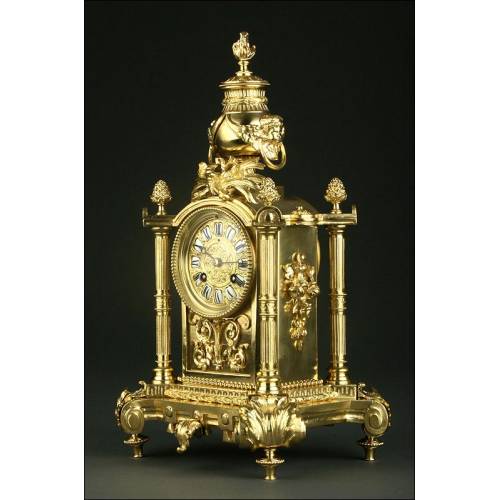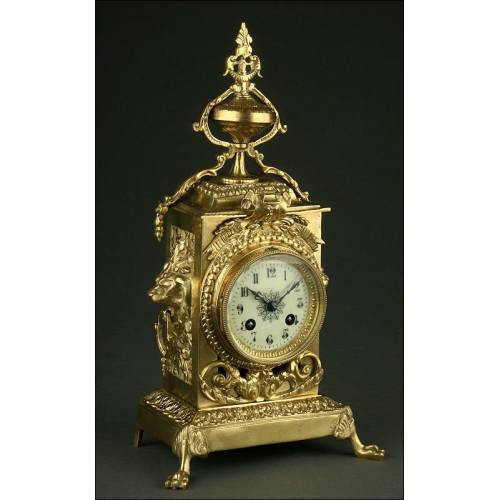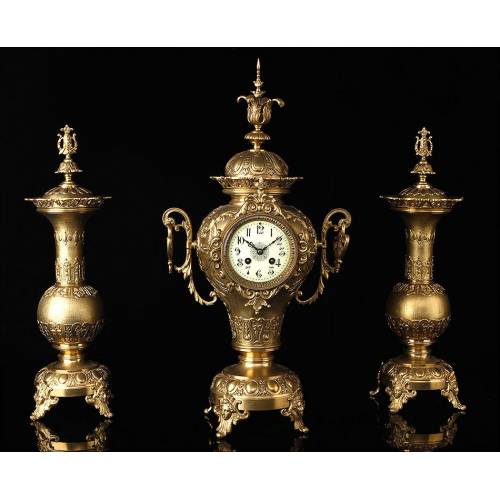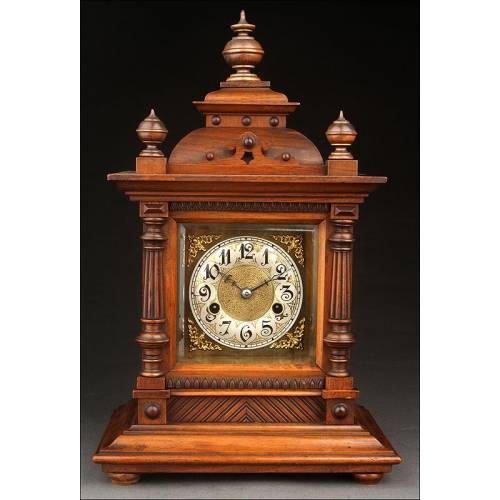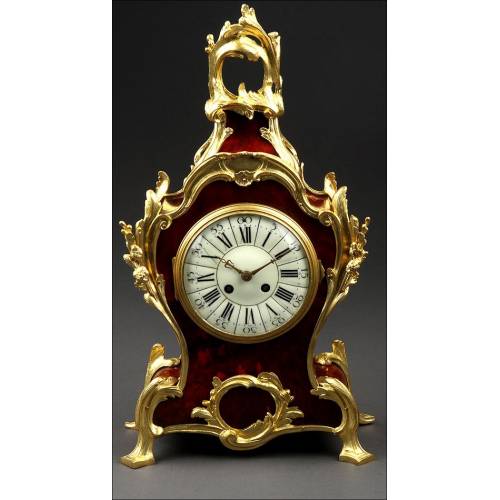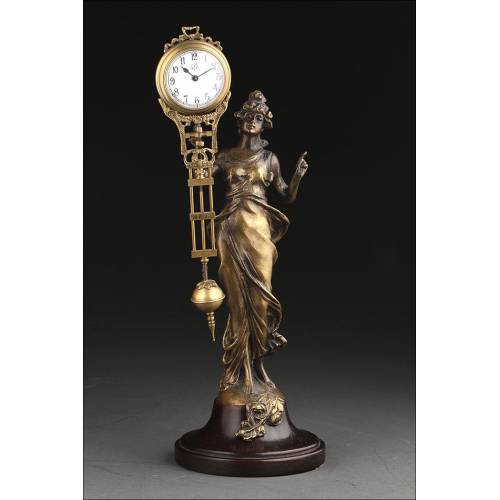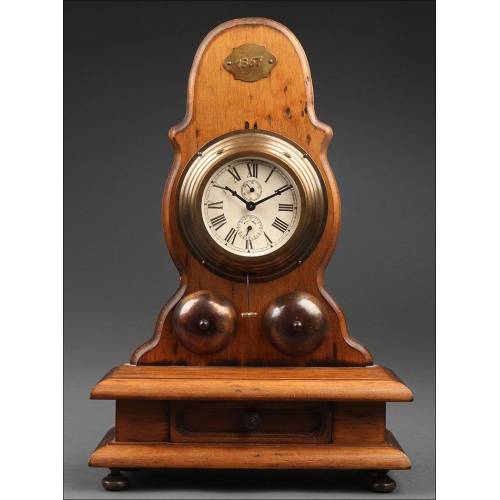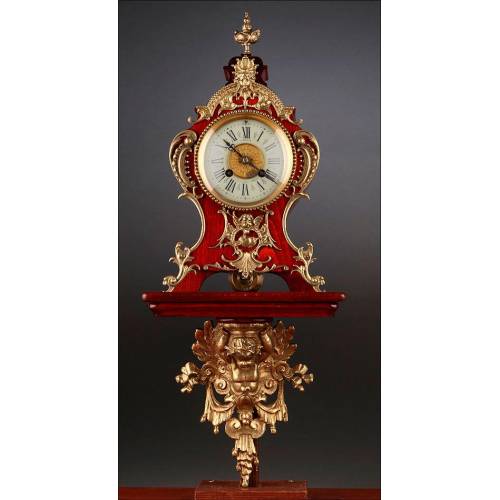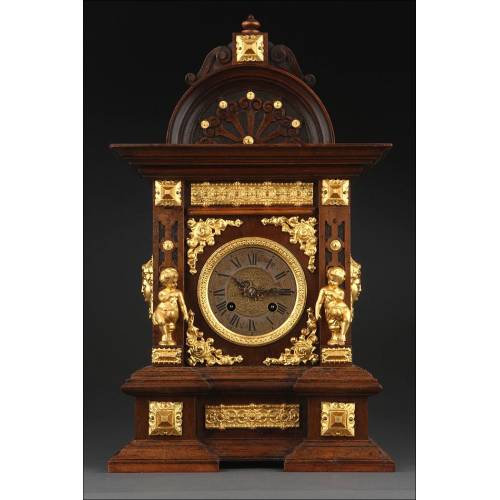557
Amphora Type Mantel Clock, circa 1900.
Antique French amphora type mantel clock, made of blued bronze and polished bronze. 1900
Sold!
Wonderful amphora-style antique clock with 8-day Paris movement, in very good condition. The clock was made in France in the late 19th century: its movement bears an engraved mark indicating that the manufacturer was awarded the Gold Medal in the Paris World Exposition, 1900. The clock is wonderfully preserved and shows almost no signs of the trace of time and use. Its movement has been fully fine-tuned so now it works perfectly. The clocks box is made of blued bronze and ormolu; the two metal textures create a lovely and stylish combination. The clock stands on an Renaissance-style bronze base with a classic fringe and four fine legs with medals and volutes. Over the base we can see the main body with a classic and wavy shape. The middle part, wider and spherical in shape, hides the movement. The clocks face is in the center of the piece: it is made of white porcelain with beautiful black Arab numbers framed by boxes. The face is decorated with red details. The blued bronze box is decorated with a curious motive that resembles us of fish scales. The face is surrounded by a lovely ormolu frame crowned by a ribbon. At the sides of the clock we find two rings: two ormolu garlands hanging from medals with womens faces. The clock is crowned by a gorgeous and delicate ormolu sculpture depicting a naked child playing with a ribbon. The whole piece is in amazing condition. At the back of the clock there is a small door that lets us reach the movement; the doors inner side bears the engraved number 921. On the other hand, the movement shows off the mark stated before with the inscription MEDAILLE DOR 1900 EXPON. UNELLE. So fine and delicate, this antique blued-bronze and ormolu mantel clock will shine on a stately sideboard, a marble mantelpiece or a classic dining table. Measurements: Width: 9.8 in / 25 cm. Height: 22.8 in / 58 cm.

